
The following events are coming up this month. These are all online events.
| Wednesday 11th November 10:00 – 11:00
British Academy Newton International Fellowships – Information Session This session provides support for preparing an application to the British Academy Newton International Fellowships. Potential BU mentors and international candidates are welcomed. You will gain an understanding of the Newton International Fellowship Scheme, and it’s aims and objectives. Support will be provided for those considering applying, but this is also suitable for those who are not sure if this is the right fund to apply to. |
| Wednesday 11th November 15:00 – 16:00 – ECR Network Meeting
Calling all ECRs, this is an opportunity to meet other Early Career Researchers and to get advice and support for any research-related queries and concerns. |
| Monday 16th November 10:00 – 12:00
Enhancing research impact: understanding and navigating bibliometrics Bibliometric analysis uses data to measure the “output” of individuals, research teams, institutions etc., and it is increasingly being used to assess the “impact” of research in order to evaluate and quantify it. This session will cover how research impact is measured, how you can maximise it, and the role of social media in promoting research. |
| Tuesday 17th November 10:00 – 12:00 – Navigating the Ethics Checklist
This workshop is designed to assist Researchers in the process of obtaining ethical approval. The review and approval process will be discussed, including how risk is identified. What makes a good an application and how to create and submit an online ethics checklist. |
| Wednesday 18th November 10:30 – 15:00 – UK Research Office Update
This event is comprised of a number of sessions: · UK Participation in Horizon 2020. An update on Horizon Europe developments · H2020 Evaluation process and proposal writing hints and tips – session for PIs involved in the Green Deal Call proposal submission · H2020 implementation matters – informal session with post-award team (based on questions submitted in advance) · 1-1 sessions if time allows For further information and to book, contact Ablaudums@bournemouth.ac.uk |
| Thursday 19th November 10:00 – 11:00 – Royal Society Overview
This workshop will provide important information for potential applicants applying to the Royal Society, including tips on applying that will increase the likelihood of success. |
| Wednesday 25th November 10:00 – 11:00
Leverhulme Early Career Fellowships Information Session This workshop will provide important information for potential applicants applying to this external funding call, including tips on applying that will increase the likelihood of success. |
To book, please email OD@bournemouth.ac.uk with evidence of approval from your Head of Department or Deputy Head of Department.
You can see all the Organisational Development and Research Knowledge Development Framework (RKEDF) events in one place on the handy calendar of events.
If you have any queries, please get in touch!
 Please see the draft agenda below and
Please see the draft agenda below and 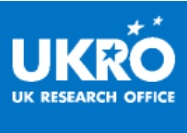 UKRO delivers subscription-based advisory service for research organisations and provides Marie Skłodowska-Curie Actions (MSCA) and European Research Council (ERC) National Contact Point services in the UK. As part of UKRO services, BU members of staff may sign up to receive personalised email alerts and get early access to the EU funding related publications on UKRO portal.
UKRO delivers subscription-based advisory service for research organisations and provides Marie Skłodowska-Curie Actions (MSCA) and European Research Council (ERC) National Contact Point services in the UK. As part of UKRO services, BU members of staff may sign up to receive personalised email alerts and get early access to the EU funding related publications on UKRO portal.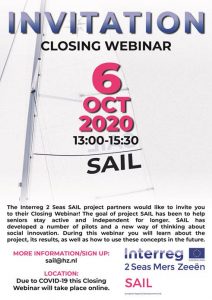 SAIL (Staying Active and Independent for Longer) has been a three year EU funded project that utilised a social innovation approach to developed 10 pilots that aimed to support active aging. Four pilots were developed in the Netherlands, 2 in France, 2 in Belgium and 2 within the UK. The role Bournemouth University Team (Prof Ann Hemingway, Prof Adele Ladkin and Dr Holly Crossen-White) was to undertake an evaluation of the pilots and develop a feasibility study regarding the use of social innovation.
SAIL (Staying Active and Independent for Longer) has been a three year EU funded project that utilised a social innovation approach to developed 10 pilots that aimed to support active aging. Four pilots were developed in the Netherlands, 2 in France, 2 in Belgium and 2 within the UK. The role Bournemouth University Team (Prof Ann Hemingway, Prof Adele Ladkin and Dr Holly Crossen-White) was to undertake an evaluation of the pilots and develop a feasibility study regarding the use of social innovation.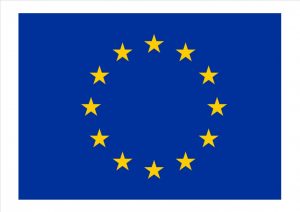 UK Research and Innovation (UKRI) has published new information about
UK Research and Innovation (UKRI) has published new information about  There are more than 370 topics in the final Work Programme of Horizon 2020 and to make their identification easier for subscribers, at the end of 2019, UKRO has produced a
There are more than 370 topics in the final Work Programme of Horizon 2020 and to make their identification easier for subscribers, at the end of 2019, UKRO has produced a 
 EMA held its 6th triennial education conference in Malmo, Sweden from the 28-29 November 2019. Dr. Luisa Cescutti-Butler and Professor Sue Way had three abstracts accepted, two of which highlighted units of learning in our midwifery undergraduate programme (Evaluating the student experience of introducing newborn infant physical theory into a pre-registration midwifery programme in the UK and An evaluation of the student experience of peer facilitated learning) and a further one which was focused on a national collaborative project on grading practice (Developing a set of key principles to achieve consistency in assessing pre-registration midwifery competency in practice in the UK). The opening keynote speaker at the EMA Conference was Fran McConville – Midwifery Expert at WHO. Fran presented on ‘Strengthening Quality Midwifery Education for Universal Health Coverage 2030’. Our takeaway message from her presentation was the following important statement: “When midwives are educated to international standards, and midwifery includes the provision of family planning……more than 80% of all maternal deaths, stillbirths and neonatal deaths could be averted”.
EMA held its 6th triennial education conference in Malmo, Sweden from the 28-29 November 2019. Dr. Luisa Cescutti-Butler and Professor Sue Way had three abstracts accepted, two of which highlighted units of learning in our midwifery undergraduate programme (Evaluating the student experience of introducing newborn infant physical theory into a pre-registration midwifery programme in the UK and An evaluation of the student experience of peer facilitated learning) and a further one which was focused on a national collaborative project on grading practice (Developing a set of key principles to achieve consistency in assessing pre-registration midwifery competency in practice in the UK). The opening keynote speaker at the EMA Conference was Fran McConville – Midwifery Expert at WHO. Fran presented on ‘Strengthening Quality Midwifery Education for Universal Health Coverage 2030’. Our takeaway message from her presentation was the following important statement: “When midwives are educated to international standards, and midwifery includes the provision of family planning……more than 80% of all maternal deaths, stillbirths and neonatal deaths could be averted”.

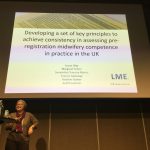
 An
An 
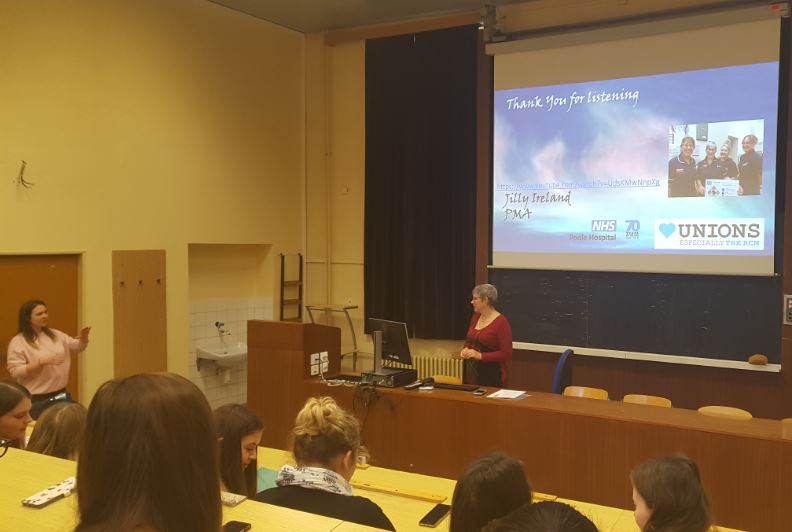
 As usual, RDS will host an annual UK Research Office visit to BU in 2019. This year’s event has been scheduled for November; the reason is obvious – Brexit!
As usual, RDS will host an annual UK Research Office visit to BU in 2019. This year’s event has been scheduled for November; the reason is obvious – Brexit! The European Commission maintains a large number of publicly available databases with details about Horizon 2020 and other EU projects. The UK Research Office (UKRO) have recently prepared a summary of sources where data related to both submitted and funded EU projects may be found; these may be useful for academics considering applying for EU funding and searching for experienced partners for future applications.
The European Commission maintains a large number of publicly available databases with details about Horizon 2020 and other EU projects. The UK Research Office (UKRO) have recently prepared a summary of sources where data related to both submitted and funded EU projects may be found; these may be useful for academics considering applying for EU funding and searching for experienced partners for future applications. CORDIS
CORDIS

 The government’s no deal guarantees remain in place to ensure continuity of funding in a no-deal scenario. The UK government has committed to underwrite competitive UK bids to EU funding submitted before exit, even if they are notified of their success after exit, for the lifetime of the projects.
The government’s no deal guarantees remain in place to ensure continuity of funding in a no-deal scenario. The UK government has committed to underwrite competitive UK bids to EU funding submitted before exit, even if they are notified of their success after exit, for the lifetime of the projects. The Information Days on H2020 Societal Challenge five: “
The Information Days on H2020 Societal Challenge five: “
 BU academics having concerns regarding their research funding after Brexit or questions before applying for a new EU grant are welcome to contact
BU academics having concerns regarding their research funding after Brexit or questions before applying for a new EU grant are welcome to contact  According to the
According to the  The government is seeking discussions with the European Commission to agree the details of our continued participation in Horizon 2020 as a third country after the exit. BU has informed the UK Government and provided basic data about all on-going Horizon 2020 projects. This will support the continuity of funding flow in case the UK Government’s underwrite mechanism should be implemented.
The government is seeking discussions with the European Commission to agree the details of our continued participation in Horizon 2020 as a third country after the exit. BU has informed the UK Government and provided basic data about all on-going Horizon 2020 projects. This will support the continuity of funding flow in case the UK Government’s underwrite mechanism should be implemented. The 2019 Marie Skłodowska-Curie Actions Individual Fellowships (MSCA IF)
The 2019 Marie Skłodowska-Curie Actions Individual Fellowships (MSCA IF) 












 REF Code of Practice consultation is open!
REF Code of Practice consultation is open! BU Leads AI-Driven Work Package in EU Horizon SUSHEAS Project
BU Leads AI-Driven Work Package in EU Horizon SUSHEAS Project Evidence Synthesis Centre open at Kathmandu University
Evidence Synthesis Centre open at Kathmandu University Expand Your Impact: Collaboration and Networking Workshops for Researchers
Expand Your Impact: Collaboration and Networking Workshops for Researchers ECR Funding Open Call: Research Culture & Community Grant – Apply now
ECR Funding Open Call: Research Culture & Community Grant – Apply now ECR Funding Open Call: Research Culture & Community Grant – Application Deadline Friday 12 December
ECR Funding Open Call: Research Culture & Community Grant – Application Deadline Friday 12 December MSCA Postdoctoral Fellowships 2025 Call
MSCA Postdoctoral Fellowships 2025 Call ERC Advanced Grant 2025 Webinar
ERC Advanced Grant 2025 Webinar Update on UKRO services
Update on UKRO services European research project exploring use of ‘virtual twins’ to better manage metabolic associated fatty liver disease
European research project exploring use of ‘virtual twins’ to better manage metabolic associated fatty liver disease